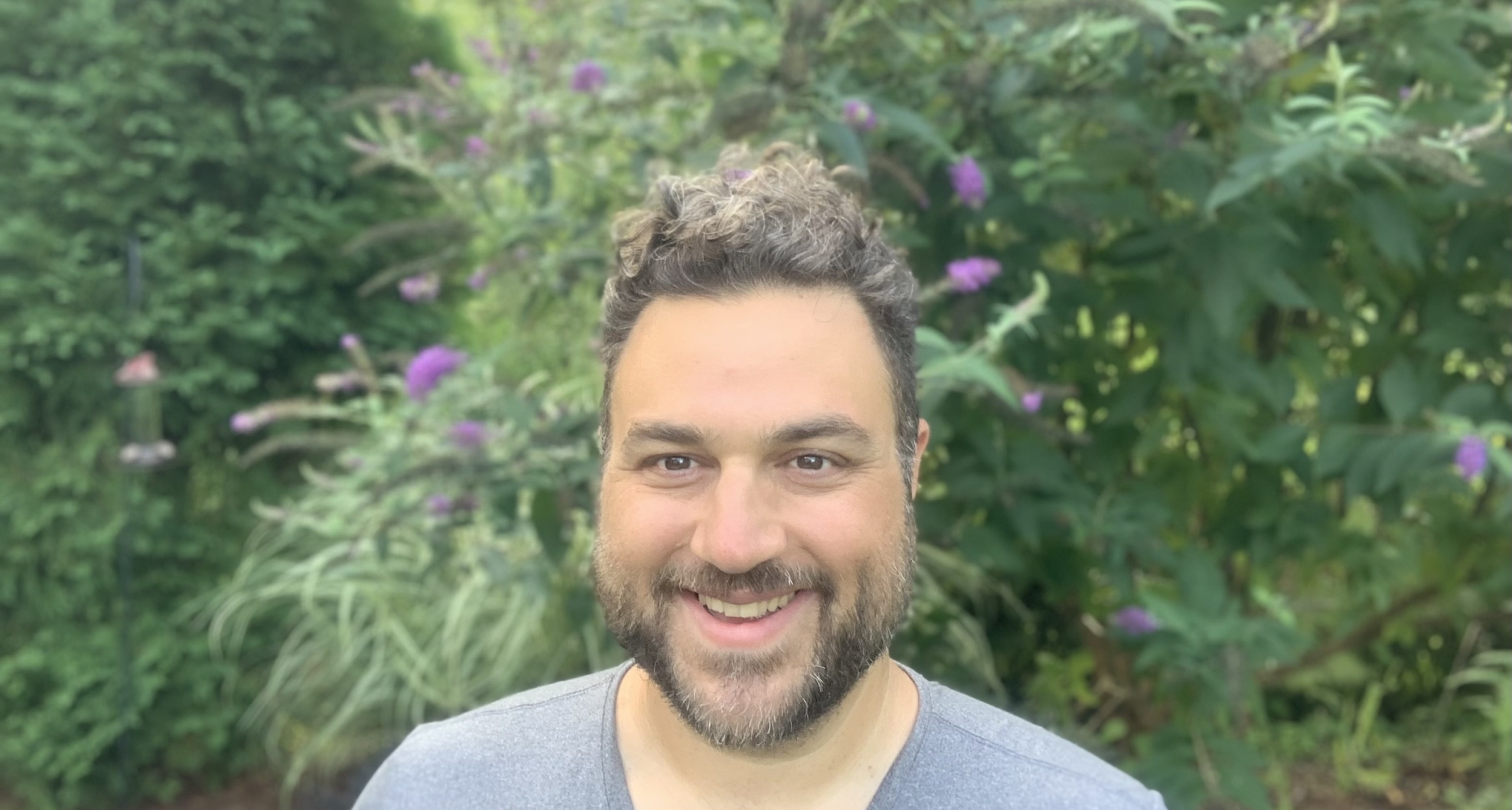We all know that healthy eating habits are important. So why do we keep engaging in unhealthy ones, knowing they may be unhelpful or even harmful to us–and even if they don’t feel very good?
You don’t need to be ashamed or blame yourself if your eating habits could be better. You’re not alone. Most Americans consume too much sugar, sodium, and saturated fat on a regular basis. We’re all human, with stressors and tension and we all have things we turn to for comfort–oftentimes unhealthy foods.
But you can modify unwanted habits and create new ones that better serve you and your health. And it might be easier than you’d think. Research shows that mindfulness training can help you understand the way your mind works, see the results of your unwanted behavior patterns, and create new and lasting habits.
Keep reading to learn how we develop our eating habits, which ones you might want to adopt or continue, and how to make healthy eating a habit.
What Are Eating Habits?
The term, eating habit, refers to all of the ways in which we consume food, such as:
- When (how many times during the day and what times; three big meals, smaller meals, snacks, or skipped meals)
- What (types of foods we eat; various food groups: protein, fat, sugar, etc.)
- How (while walking or standing, quickly and mindlessly or slowly and attentively)
Maybe you eat dinner quickly and mindlessly while watching TV, and you only stop after your favorite show ends and you’ve eaten way too much. Or maybe you have a big snack when you get home from work–not because you’re physically hungry but because you’re exhausted, stressed, and relieved to be done for the day. And then you may feel ashamed, regretful, or depressed, and possibly struggle with weight gain.
Some other common unhealthy eating habits that you may want to look out for are:
- Eating very quickly
- Eating when you’re not physically hungry
- Eating to manage stress or soothe other emotions
- Eating while standing up or on-the-go, which may cause you to eat too fast or mindlessly
- Binge-eating high-sugar, high-fat foods
- Binge-eating late at night
- Skipping breakfast or other meals
None of these habits are cause for self-judgment. Many of us engage in unhealthy eating habits; it’s normal, and it doesn’t mean there’s anything wrong with you. It’s also never too late to create new, healthier habits that feel better. With the right tools, you can change the way you relate to food–and to yourself–without restriction or willpower. And it can feel surprisingly nourishing.
Read on to learn why we continue to engage in unhealthy eating habits even when we know they’re not beneficial.
Why Do We Continue Unhealthy Eating Habits?
Our brains are built to learn; they consolidate and store information derived from experiences in our internal and external environment. This helps us remember important people, places, and things, avoid dangerous situations, and complete mundane tasks quickly and easily–some habits are a good thing.
Quickly brushing our teeth, getting dressed, and making breakfast are essential habits. If we didn’t have these behaviors memorized, every tiny decision would be stressful and time-consuming, and our lives would be a lot harder. These habits save us time and energy that we can devote to more important things in life.
However, unhealthy eating habits can also become ingrained, and we may be harming ourselves by repeating them over time. For example, we know that frequently overindulging in high-sugar, high-fat foods isn’t healthy, and it often doesn’t feel very good after the initial pleasure of eating, either. But we may continue to do it anyway due to chronic stress, to celebrate holidays or weekends with loved ones, or because we’re exhausted from working a stressful job. When we’re depleted, our inhibitions are low–and because our brains have memorized the pleasurable and tension-releasing effects of eating these foods, we repeat our learned behaviors automatically.
The brain is wired to seek out pleasure and recognize patterns by connecting actions with positive results. When we make a connection between a behavior and the resulting feeling of pleasure, the brain files that information away, and now we know that if we do X, we get Y result. So even if we’re not in the exact same situation we were when we made this connection, we often repeat the pattern.
Each time we repeat a behavior we’ve memorized through this reward system, our brain reinforces those connections. This is how we form habits.
Why Eating Habits Are Challenging to Break
The reward system through which we develop habits involves deeper, more primitive, survival-focused parts of the brain, such as the amygdala and nucleus accumbens. Alternatively, reasoning, logic, and conscious decision-making occur in the prefrontal cortex, a younger part of the brain from an evolutionary standpoint.
This is why dieting often doesn’t work, long-term. When we’re tired, stressed, or burnt out, the prefrontal cortex “goes offline,” and the more primitive parts of our brain take over. We operate from our learned eating habits rather than willpower. You may be familiar with this if you’ve been on the yo-yo dieting roller coaster for any length of time. The results are often short-lived.
We may repeat our habits for years without realizing we’re running on autopilot. For example, maybe we often indulged in fast food after school. High-sugar, high-fat foods activate the pleasure center in the brain, so we learned to associate these high-sugar, low-nutrient foods with feeling good.
Now we may stop for fast food on our way home from work–or anytime we want to feel better–because it creates a short-term high or distraction from our stress, and perhaps feels nostalgic. The more we repeat this behavior, the more our brain reinforces the habit loop. And thus, we can easily get stuck in a cycle of unhealthy eating that we carry into adulthood.
At some point, these habits may have worked well for us–and they may still bring us temporary pleasure. But over time, we can get “stuck” in habits that only benefit us very temporarily and cause more harm than good in the long run.
So if you’re struggling to change unhealthy eating habits, there’s no reason to fault yourself or feel ashamed. There’s a biological reason for unwanted eating habits. But you can rewire your brain, unlearn old, unwanted eating habits, and create new ones that nourish your body and mind.
And changing your habits doesn’t have to feel restrictive or punishing. The process of rewiring your brain can be very rewarding and has been shown to reduce cravings by 40%. So you’ll actually want to eat better.
How to Change Your Eating Habits Permanently
So how do we make healthy eating a habit without using willpower? As we discussed, willpower and force often do not create lasting change because they occur in a different area of the brain than where our habits live. When we diet, we try to override our habitual patterns without addressing the root causes of those patterns. This is a recipe for disaster–and, of course, yo-yo dieting, weight gain, and other problems.
A safer, more effective, and more rewarding way to change unhealthy eating habits is cultivating increased awareness around our behaviors to get very clear on what we’re getting out of them. When we curiously, openly, and non-judgmentally focus on our immediate experiences, we rediscover what does and doesn’t feel good, and we begin to build disenchantment with what doesn’t. From there, we’re empowered to make new choices that do feel good–naturally, without willpower or force. And you can start doing this today with very minimal effort.
Mindfulness to Change Unhealthy Eating Habits
With a sense of kindness and curiosity, start paying close attention to how you feel when you eat. This is not about beating yourself up or trying to be perfect. This is just about building awareness. Look closely at what urges you to reach for food. Is it a grumble in your stomach? A stressful conversation? Or was it nothing noticeable at all? It’s ok if you’re not sure. This worksheet may be helpful in identifying the stages of your habit loops.
Notice how your food tastes and smells, and eat it slowly. How does your body feel? What thoughts and emotions are present? How do you feel after you’ve finished eating? It may sound strange, but simply by noticing what happens when we engage in our routine behaviors can create dramatic changes. Curiosity feels good to engage in, and mindfulness itself is a proven method for reducing stress and anxiety.
You may notice some things about eating you haven’t before. You may find that, when you wait to eat until you’re physically hungry, food actually tastes better and you enjoy it more than when you eat due to stress, loneliness, or boredom. You’ll probably also notice that overeating doesn’t feel very good, and you’ll become increasingly uninterested in eating beyond your body’s needs, if that is a habit for you.
Remember: your brain hard-wired these eating patterns over time, so it may take some time and patience to unravel them and replace them with healthier behavior patterns. But you can do it. See if you can maintain a sense of playfulness with this, and don’t rush the process. You’re human, you’re doing the best you can, and that is enough.
Let’s discuss some healthy eating habits you may want to consider incorporating once you’ve become more aware of the results of your unwanted ones and are empowered to make new mindful choices.
Which Eating Habits Should You Continue?
Everyone’s different, so there’s no one-size-fits-all rule for what healthy eating looks like. But there are some general guidelines you can follow that help with satiety, support healthier skin, teeth, and eyes, and lower your risk of diseases like diabetes and cancer. Those are just a few reasons why healthy eating habits are so important.
Without pressuring or restricting yourself, see if you can gently start engaging in the following habits, slowly and curiously. It may be helpful to explore the results when you eat different amounts and types of foods. How do you feel, physically and emotionally? How long do those results last? And remember, healthy eating habits look different for everyone, these are general tips to try and see if they work for you. Be sure to talk to your doctor when making any major diet changes.
- Fill half your plate with whole fruits and a variety of vegetables at every meal.
- Eat plenty of lean protein, such as meat, poultry, and eggs. Beans, lentils, peas, nuts, seeds, and soy are also high in protein.
- Include healthy fats, such as from avocado and fish that are higher in omega-3s and lower in mercury, such as salmon, trout, and anchovies.
- Get your carbohydrates from whole grains, such as quinoa, nuts, legumes, beans and unsweetened greek yogurt.
- Cut down on processed foods.
- Don’t skip breakfast or other meals (unless you’ve checked in with your body and are truly not hungry).
- Eat in a quiet environment instead of in front of the TV or on-the-go when possible.
- Take your time to slow down a little so you can really taste and savor your food in an enjoyable way, noticing when you feel satiated and content.
When you start incorporating these tips, these new habits will begin to feel good. You’ll feel better when you eat nutrient-dense foods, eat mindfully, stop eating when you’re full, and consume moderate amounts of low-nutrient, less truly fueling foods. These are things you can achieve—and without denying or forcing yourself.
At first, these new behaviors may seem a lot easier said than done. That is normal. It took time to develop your old habits, and it will take some time to learn new ones. Remember, decision-making occurs in the prefrontal cortex, and our habits are stored in an entirely different area of the brain. It’s important not to rush yourself into changing your eating habits before you’ve spent some time cultivating more awareness around the results these old habits have caused. You can do it.
Change Unhealthy Eating Habits For Good with Eat Right Now
Even if you’ve been engaging in unhealthy eating habits for some time, you can develop new, healthier habits and make friends with food again. A science-based, clinically-proven mindful eating program can help you learn tools to become non-judgmentally aware of the impact of your unhealthy eating habits, develop new coping mechanisms, and create healthier habits that feel good.
Eat Right Now was developed by neuroscientist and addiction psychiatrist, Dr. Judson Brewer. It includes daily lessons, craving-specific tools, journaling opportunities and prompts, and a supportive online community, complete with live, weekly calls and expert facilitators. You’ll learn to differentiate between real hunger and emotional craving and build new, healthier eating habits that last.
You can make healthy eating a habit and make friends with food again. Click here to get started with the Eat Right Now program today.




